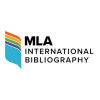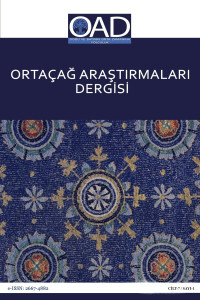Research Article
Systematic Reviews and Meta Analysis
Systematic Reviews and Meta Analysis
1. Hârizmşahlar Devleti-Irak Selçuklu Devleti İlişkilerine Dair Bir DeğerlendirmeTranslation
Issue Editorial Board
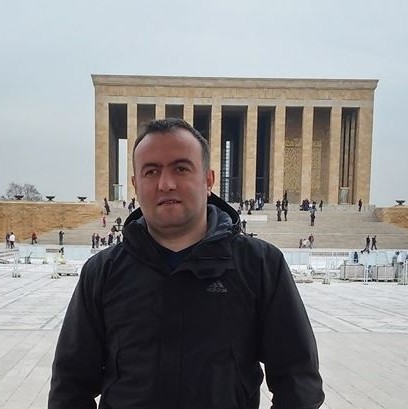
English, Latin
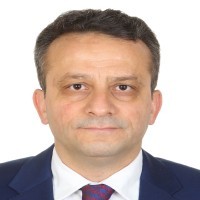

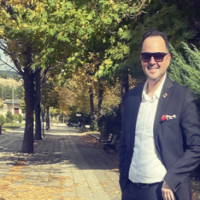
Çalışmalarımda İngilizce, Latince ve Rusça kullanmaktayım

1970 yılında Sungurlu'da doğdu.
Ankara Üniversitesi, DTCF Coğrafya bölümünden 1991 yılında mezun oldu.
Yüksek Lisansı 1994 yılında ve doktorayı 1997 yılında tamamladı.

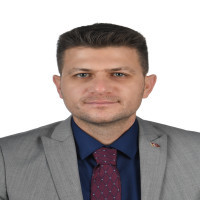




 Web
Web

Lisans: Hacettepe Üniversitesi Fen Edebiyat Fakültesi Sanat Tarihi (1999-2003)
Yüksek Lisans: Hacettepe Üniversitesi Sosyal Bilimler Enstitüsü Sanat Tarihi ABD (2004-2007)
Doktora: Ankara Üniversitesi Sosyal Bilimler Enstitüsü Sanat Tarihi ABD (2011-2017)
Unvan-Kurum: Doç. Dr., Bozok Üniversitesi Fen-Edebiyat Fakültesi Sanat Tarihi Bölümü, Bizans Sanatı Anabilim Dalı Başkanı
1978 İstanbul doğumlu. 1996-2000 yılları arasında İstanbul Üniversitesi Edebiyat Fakültesi Tarih Bölümü’nde Lisans öğrenimini tamamladı. 2002 senesinde İstanbul Üniversitesi Edebiyat Fakültesi Tarih Bölümü Ortaçağ Tarihi Anabilim Dalı’na Araştırma Görevlisi olarak atandı. 2004 yılında İstanbul Üniversitesi Sosyal Bilimler Enstitüsü’nde Yüksek Lisans programından mezun oldu. 2012 senesinde Doktor, 2020’de Doçent unvanlarını aldı. Hâlen aynı anabilim dalında görevine devam etmekte olup İslâm denizciliği ve Türk-İslâm devletleriyle ilgili Lisans, Yüksek Lisans ve Doktora dersleri vermekte, bu konulardaki ilmî çalışmalarına devam etmektedir. İngilizce, Arapça ve Farsça biliyor.

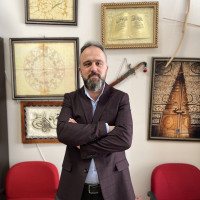
1981 yılında Giresun’da dünyaya geldi. 2005 yılında Marmara Üniversitesi İlahiyat Fakültesi’nden mezun oldu. 2011 yılında “Ebûbekir Zekeriyâ Râzî’nin Metafiziği” adlı teziyle Marmara Üniversitesi Sosyal Bilimler Enstitüsü Felsefe ve Din Bilimleri Anabilim Dalı İslam Felsefesi Bilim Dalı’nda yüksek lisansını; 2017 yılında ise aynı Enstitünün Felsefe ve Din Bilimleri Anabilim Dalı’nda “Fahreddîn er-Râzî’nin el-Mantıku’l-Kebîr’inin Tahkik ve İncelemesi” adlı tezle Mantık alanında doktora eğitimini tamamlamıştır. 2004 yılından itibaren çeşitli kamu kuruluşlarında çalıştıktan sonra 2011 yılında Erzincan Üniversitesi İlahiyat Fakültesi Mantık Anabilim Dalı’na Araştırma görevlisi olarak atanmış olup 2018'de Dr. Öğretim Üyesi, 2022 yılında da Doçent olarak atanmıştır. Halen Gümüşhane Üniversitesi İlahiyat Fakültesi Mantık Anabilim Dalında Doçent olarak görev yapmaktadır. Çalışma alanları; mantık, metafizik ve metodoloji ayrıca felsefi meseleler üzerine popüler yayınları vardır.
Gazete yazıları, Tv programları, şiirleri ve youtube yayınları bulunmaktadır.
Evli ve dört çocuk babasıdır.
Aim & Scope
The aim of the Journal of Medieval Studies is to be among the priority journals that are published in regular intervals and preferred in the field of Medieval History, in accordance with scientific norms and scientific ethics, by rigorously evaluating qualified and original studies in the field of Medieval History.
"One of the aims of this journal is to share scientifically the information (Archaeology, Art History, History,etc.) produced especially in Türkiye in the field of the Middle Ages."
-Our journal covers all events that shape history by affecting the Eastern World and the Western World politically, socially, economically and culturally within a long period of time such as the Middle Ages.
-The Journal of Medieval Studies aims to contribute to the publication of academic studies that can reveal the political, social, economic and cultural development in the Eastern and Western world in the Middle Ages, which is a very important transition period of history.
-Within this framework, the journal can adopt the publication of some issues as publication topics.
-Articles published in this framework are based entirely on scientific research.
-There are at least one resource analysis in each issue, book promotions and translations (with the approval of the authors).
-The journal carries an electronic feature and every copy is made accessible to the internet.
-The journal, which does not have an organic connection with any institution and organization, publishes articles of all researchers interested in the history of the Middle Ages, with the scientific and legal responsibility of the opinions in the published studies.
Subject Category
Social Science
- LC Category: Social Sciences (General)
- LC Category: Philosophy. Psychology. Religion
- Cultural Studies (Medieval Culture)
- Archeology, Regional Studies, Cultural Studies, Other Subjects of Social Sciences
Art & Humanities
- History (Medieval History)
- Literature (Medieval Literature)
- Philosophy (Medieval Philosophy)
- Art (Medieval Art)
- Logic (Medieval Logic Studies and Reflections)
- Archeology (Roman-Byzantine and Medieval Archeology)
- Religion (Research on Medieval Islamic History and Related Sciences)
- Library of Congress/LCC Subject Category: History and European History, Associated Sciences (General)
Keywords
- Medieval
- Religion
- Philosophy
- History
- Sociology-Psychology
- Literature
- History of art
- Archaeology
- Medieval History (Other)
- Islamic History and Civilization
- Turkish Islamic Intellectual History
- History of Turkish Islamic States
- Seljuk History
- Late Roman History
- Medieval Cities
- Medieval Folk Culture
- Medieval European History
- Medieval Asian History
- Byzantine History
- Central Asian History
- Turkish Steppe Culture
- Pre-Islamic Turkish History
- Medieval Archeology
- Islamic Geography Archeology
- Seljuk Archeology
- Greek and Roman Archeology
- Medieval Philosophy
- Turkish Islamic Thought
- Islamic Philosophy
- Logic
- Society and Culture
- Christian Studies
- Judaism Studies
- Medieval Eastern and Western Literature
Author Guidelines
Submission Dates
Issue of June: January 01 - May 01 | Issue of December: July 01 - November 01Writing Manuscript
Authors of original research should address the topic in an original way and an objective discussion. A paper should contain sufficient detail and references to permit others to replicate the work. Fraudulent or knowingly inaccurate statements constitute unethical behavior and are unacceptable. Short and long summaries and articles in English must be written in either United Kingdom English or United States (USA) English.OAD ARTICLE TEMPLATE I OAD AUTHOR FORM I COPYRIGHT AGREEMENT
Originality
The author must provide assurance that the article is original, has not been previously published elsewhere, and is not under consideration for publication elsewhere, in another language.Originality of Sources
Authors should ensure that they are writing a completely original paper and that if they have used the work or words of others, it is appropriately cited. Privately obtained information, such as in conversations, correspondence, or discussions with third parties, should not be used without the express and written permission of the source.Data Access and Retention
Authors may be asked to provide the research data supporting their paper for editorial review and/or to comply with the open data requirements of the journal. Authors should be prepared to provide public access to such data, if practicable, and should be prepared to retain such data for a reasonable number of years after publication. The Ortacag arastirmalari Dergisi recommends uploading research data to TUBITAK's Aperta Portal.Multiple and Concurrent Publication
An author should not publish an article containing the same research in more than one journal. Submitting the same article to more than one journal at the same time is unethical behavior. An author should not submit a previously published article for consideration in another journal, except in the form of an abstract.Publication of research that involve human subjects (i.e., surveys and interviews)
For research conducted in all branches of science that requires ethics committee approval (ethics committee approval should be obtained, this approval should be stated and documented in the article. In research that requires ethics committee permission, information about the permission (name of the committee, date, and number) is in the method section, and also on one of the first/last pages of the article; In case of reports, information about signing the informed consent/consent form should be included in the article.Competing Interests
Conflict of Interest is any financial or other interest that may conflict with one's work, significantly impair objectivity, or provide an unfair advantage to any person or organization. All authors must disclose in their writing any financial and personal relationships with individuals or organizations that may be seen to improperly influence their work. All financial support resources and the role of sponsors in the study should be explained during the conduct of the research and the preparation of the article. If there is no source of funding, this should also be stated. Examples of potential conflicts of interest that need to be disclosed include consultations, hiring, and grants. Potential conflicts of interest should be disclosed at the earliest possible stage.Notification of Errors
When an author notices a material error or inaccuracy in his published work, he should notify the journal immediately. It is also the author's obligation to cooperate in retracting or correcting the article if deemed necessary by the editor. If the editor or publisher learns from a third party that a published work contains errors, it is the author's obligation to cooperate with the editor, including notifying the editor.Image Integrity
It is not acceptable to enhance, obscure, move, remove, or introduce a specific feature within an image. Authors must abide by the policy for graphic images enforced by the journal.Manuscript Preparation
- Language: Turkish or English
- The language of the journal is Turkey Turkish and English.
- Types of Article: Research Article – Book Review
- The Journal publishes Research Papers and Book Reviews. There is no word limit for research papers. However, we advise the authors to make the work as concise as possible for dissemination.
- Article Format: MS Word Template
- Image Format: JPEG: minimum of 300 dpi
- Bibliography Style: CHIGACO Citation Style
- Authors are required to carefully review the list and order of authors before submitting their manuscript and to provide the definitive list of authors at the time of original submission
Citation Style
The Ortacag arastirmalari Dergisi requires writers to use the CHIGACO Citation Style. In the field of science, CHIGACO footnote or in-text system, whichever is widely used, can be preferred. CHIGACO Citation Style (PDF)Submission checklist
It is hoped that this list will be useful during the final checking of an article prior to sending it to the journal's Editor for review.- Author information added.
- E-mail address
- Full mailing address
- Phone number
- All necessary files have been uploaded
- Article text
- Copyright Agreement
- The manuscript has been "spellchecked" and "grammar-checked"
- All references mentioned in the Reference list are cited in the text, and vice versa.
Submit Manuscript
The account of the corresponding author of the manuscript should be used in the applications. All correspondence regarding the application is forwarded to the responsible author via e-mail sent through the journal system. When uploading the file of the main text of the article, make sure that this file does not contain any elements that decipher the identity of the author, due to the double-blind peer review process.Submission URL: https://dergipark.org.tr/tr/journal/2725/submission/step/manuscript/new
Files You Need To Download Separately: Manuscript Full Text | Copyright Form | Author Form
Keeping track of your submission
You can keep track of your manuscript throughout the process by going to your author area in Journal System. Here it will list for you manuscripts you have submitted under "Submitted manuscripts". If your manuscript is sent for external peer review, you will find reviewers' comments in the decision letter. Please click on "Manuscripts with decision" and click on "View decision letter."Ethical Principles and Publication Policy
Ethical Principles and Publication Policy
Editorial Duty of Confidentiality
- Editors and editorial staff at The Ortacag Arastirmalari Dergisi,
- External reviewers,
- Members of the journal's editorial committees,
- The only occasion when details about a manuscript might be passed to a third party without the authors’ permission is if the editor suspects serious research misconduct.
llegations of Scientific misconduct - Suspect Research or Publication Misconduct
- Redundant (duplicate) publication in a submitted manuscript
- Plagiarism in a submitted manuscript
- Fabricated data in a submitted manuscript
- Changes in authorship
- Undisclosed conflict of interest in a submitted manuscript
- Ghost or gift authorship in a submitted manuscript
- Suspected ethical problem in a submitted manuscript
- Responding to whistleblowers when concerns are raised directly
- Responding to whistleblowers when concerns are raised via social media
Complaints Procedure
- In the case that this initial response is felt to be insufficient, the complainant can request that their complaint is escalated to a more senior member of the team.
- If the complainant remains unhappy, complaints may be escalated to an executive editor and, ultimately the editor-in-chief, whose decision is final.
- If a complainant remains unhappy after what the editor-in-chief considers a definitive reply, the complainant may complain to ortacagarastirmalaridergisi@gmail.com.
- If possible, a full response will be made within two weeks.
COPE publishes a code of practice for editors of scientific journals. It will facilitate the resolution of disputes with member editors, journals, and publishers, but only once a journal’s own complaints procedures have been exhausted.
Appeal Process
Conflicts of Interest
Publication Ethics
- Ethical researchers do not plagiarize.
- They do not misreport sources.
- They do not conceal objections that they cannot rebut.
- They do not caricature or distort opposing views.
- They do not destroy or conceal sources and data important for those who follow.
Peer-reviewed studies are the ones that support and materialize the scientific method. At this point, it is of utmost importance that all parties included in the publication process (authors, readers, and researchers, publisher, reviewers, and editors) comply with the standards of ethical considerations. The Ortacag Arastirmalari Dergisi adheres to national and international standards on research and publication ethics. It complies with Press Law, Intellectual and Artistic Works Law, and Higher Education Institutions Scientific Research and Publication Ethics Directive. The Ortacag Arastirmalari Dergisiadopted the International Ethical Publishing Principles published by the Committee on Publication Ethics (COPE), Directory of Open Access Journals (DOAJ), Open Access Scholarly Publishers Association (OASPA), and World Association of Medical Editors (WAME). It also undertakes to comply with the Decisions of the Turkey Editors' Workshop.
- Press Law (National Legislation)
- Law on Intellectual and Artistic Works (National Legislation)
- Higher Education Institutions Scientific Research and Publication Ethics Directive (National Legislation)
- Transparency and Best Practice in Academic Publishing
- Decisions of the Turkey Editors' Workshop (National Legislation)
Duplicate Publication
Simultaneous submission of manuscripts
Publication Check for Plagiarism
Data fabrication and falsification
Dealing with allegations of research misconduct
Complaints
Research Ethics
- Principles of integrity, quality, and transparency should be sustained in designing the research, reviewing the design, and conducting the research.
- The research team and participants should be fully informed about the aim, methods, possible uses and requirements of the research, and risks of participation in research.
- The confidentiality of the information provided by the research participants and the confidentiality of the respondents should be ensured. The research should be designed to protect the autonomy and dignity of the participants.
- Research participants should participate in the research voluntarily, not under any coercion.
- Any possible harm to participants must be avoided. The research should be planned in such a way that the participants are not at risk.
- The independence of research must be clear; any conflict of interest or must be disclosed.
- In experimental studies with human subjects, written informed consent of the participants who decide to participate in the research must be obtained. In the case of children and those under wardship or with confirmed insanity, the legal custodian’s assent must be obtained.
- If the study is to be carried out in any institution or organization, approval must be obtained from this institution or organization.
- In studies with a human subject, it must be noted in the method’s section of the manuscript that the informed consent of the participants and ethics committee approval from the institution where the study has been conducted have been obtained.
Price Policy
There are NO PUBLICATION FEES (article processing charges or APCs) to publish with this journal.
Ortacag Arastirmalari Dergisi is an open-access, peer-reviewed scientific e-journal that publishes research articles that will contribute to the field of Medieval History twice a year, in June and December. All charges of the Ortacag Arastirmalari Dergisi are covered by Dergipark. The publication of articles and the execution of article processes in the journal are free of charge. No processing fee or submission fee is charged under any other names (editorial processing charges, language editing fees, colour charges, submission fees, page charges, membership fees, print subscription costs, or other supplementary charges). As part of its publication policies, Ortacag Arastirmalari Dergisi does not accept sponsorship or advertisements.
Indexes
Citation Indexes
Other Indexes
Journal Boards
Owner

English, Latin
Editors


English, Latin
Field Editors
1978 İstanbul doğumlu. 1996-2000 yılları arasında İstanbul Üniversitesi Edebiyat Fakültesi Tarih Bölümü’nde Lisans öğrenimini tamamladı. 2002 senesinde İstanbul Üniversitesi Edebiyat Fakültesi Tarih Bölümü Ortaçağ Tarihi Anabilim Dalı’na Araştırma Görevlisi olarak atandı. 2004 yılında İstanbul Üniversitesi Sosyal Bilimler Enstitüsü’nde Yüksek Lisans programından mezun oldu. 2012 senesinde Doktor, 2020’de Doçent unvanlarını aldı. Hâlen aynı anabilim dalında görevine devam etmekte olup İslâm denizciliği ve Türk-İslâm devletleriyle ilgili Lisans, Yüksek Lisans ve Doktora dersleri vermekte, bu konulardaki ilmî çalışmalarına devam etmektedir. İngilizce, Arapça ve Farsça biliyor.



1970 yılında Sungurlu'da doğdu.
Ankara Üniversitesi, DTCF Coğrafya bölümünden 1991 yılında mezun oldu.
Yüksek Lisansı 1994 yılında ve doktorayı 1997 yılında tamamladı.


Çalışmalarımda İngilizce, Latince ve Rusça kullanmaktayım

1981 yılında Giresun’da dünyaya geldi. 2005 yılında Marmara Üniversitesi İlahiyat Fakültesi’nden mezun oldu. 2011 yılında “Ebûbekir Zekeriyâ Râzî’nin Metafiziği” adlı teziyle Marmara Üniversitesi Sosyal Bilimler Enstitüsü Felsefe ve Din Bilimleri Anabilim Dalı İslam Felsefesi Bilim Dalı’nda yüksek lisansını; 2017 yılında ise aynı Enstitünün Felsefe ve Din Bilimleri Anabilim Dalı’nda “Fahreddîn er-Râzî’nin el-Mantıku’l-Kebîr’inin Tahkik ve İncelemesi” adlı tezle Mantık alanında doktora eğitimini tamamlamıştır. 2004 yılından itibaren çeşitli kamu kuruluşlarında çalıştıktan sonra 2011 yılında Erzincan Üniversitesi İlahiyat Fakültesi Mantık Anabilim Dalı’na Araştırma görevlisi olarak atanmış olup 2018'de Dr. Öğretim Üyesi, 2022 yılında da Doçent olarak atanmıştır. Halen Gümüşhane Üniversitesi İlahiyat Fakültesi Mantık Anabilim Dalında Doçent olarak görev yapmaktadır. Çalışma alanları; mantık, metafizik ve metodoloji ayrıca felsefi meseleler üzerine popüler yayınları vardır.
Gazete yazıları, Tv programları, şiirleri ve youtube yayınları bulunmaktadır.
Evli ve dört çocuk babasıdır.
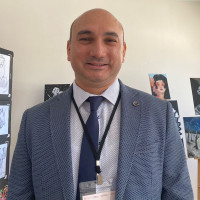
 Web
Web

Lisans: Hacettepe Üniversitesi Fen Edebiyat Fakültesi Sanat Tarihi (1999-2003)
Yüksek Lisans: Hacettepe Üniversitesi Sosyal Bilimler Enstitüsü Sanat Tarihi ABD (2004-2007)
Doktora: Ankara Üniversitesi Sosyal Bilimler Enstitüsü Sanat Tarihi ABD (2011-2017)
Unvan-Kurum: Doç. Dr., Bozok Üniversitesi Fen-Edebiyat Fakültesi Sanat Tarihi Bölümü, Bizans Sanatı Anabilim Dalı Başkanı

Foreign Language Editor

 Web
Web
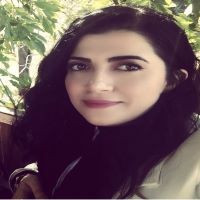
Editorial Board
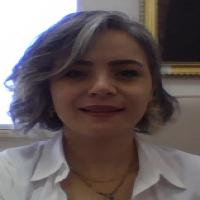
Lisans, Yüksek Lisans eğitimini Fars Dili ve Edebiyatı alanında tamamlamış olup 2017 yılında aynı alanda Dr. ünvanını almıştır. Halen Tokat Gaziosmanpaşa Üniversitesi Yabancı Diller Yüksekokulunda Dr. Öğr. Üyesi olarak görev yapmaktadır.

Trabzon'da doğdu. Ege Üniversitesi'nde Tarih okudu. 2013'te Yrd. Doç. Dr., 2016'da Doç. Dr., 2021'de Prof. Dr. oldu. Muş Alparslan Üniversitesi rektörlüğünü yürütüyor.
ODTU felsefe bölümünden Lisans derecesiyle mezun olduktan sonra Bilkent Üniversitesi tarih bölümünde yüksek lisans ve doktora yaptım. halen Mersin Üniversitesinde Profesör olarak çalışıyorum
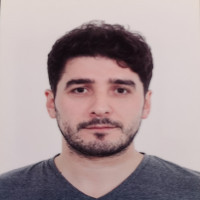
İngilizce, Arapça, Farsça
LANGUAGE EDITORS

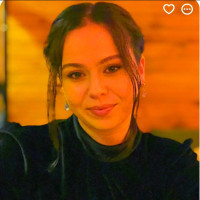

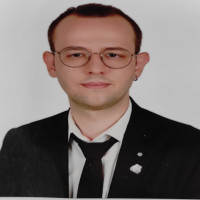

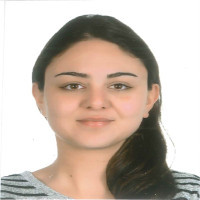
Ethical Editor

 Web
Web
Statistics Editor
Managing Editor
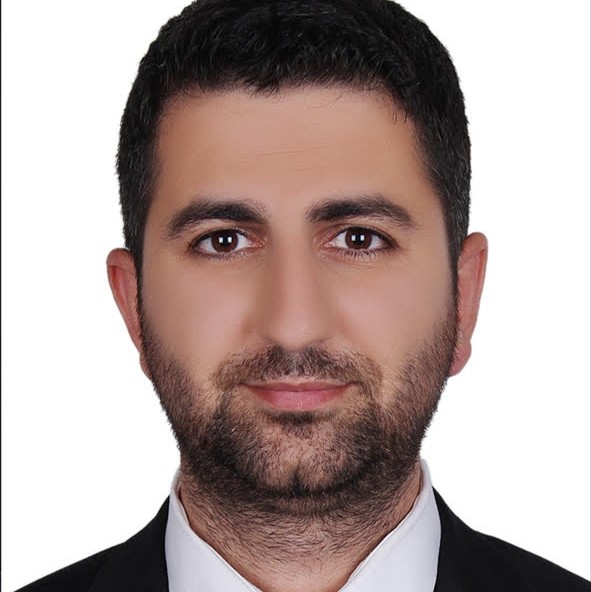
Responsible of Social Media


JOURNAL OWNER

English, Latin
EDITORS

English, Latin

EDİTORİAL BOARD

Uli Schamiloglu is Professor and chair in the Department of Kazakh Language and Turkic Studies at Nazarbayev University in Astana, Kazakhstan. He is also director of the Ph.D. in Eurasian Studies program at Nazarbayev University. He received his B.A. in Middle East Languages and Cultures from Columbia College in 1979 (with a concentration in Turkish Studies) and his Ph.D. in Middle Eastern and Central Asian History from Columbia University in 1986. He also studied in the Department of Altaistics at Szeged University in Hungary in Fall 1982. He has taught previously at Indiana University-Bloomington (1983-1989) and at the University of Wisconsin-Madison (1989-2017), where he is now professor emeritus.
His main research interests include the Turkic languages and cultures of the Middle East and Central Eurasia, the socio-economic history of the Middle East and Central Eurasia in the medieval period (especially the Golden Horde), the history of Turko-Islamic civilization, and modern intellectual movements among the Muslim Turkic peoples of the Ottoman and Russian Empires. Since the late 1980s he has also been interested in the role of the bubonic plague in the history of medieval Central Eurasia, especially the impact of plague on the history of populations, written monuments, literary languages, religiosity, and other spheres. This has led to a growing interest in the “Science of the History of Man”. In this regard, he has worked with colleagues to establish the Nazarbayev University aDNA Lab.

ODTU felsefe bölümünden Lisans derecesiyle mezun olduktan sonra Bilkent Üniversitesi tarih bölümünde yüksek lisans ve doktora yaptım. halen Mersin Üniversitesinde Profesör olarak çalışıyorum

English, Latin

İngilizce, Arapça, Farsça
FIELD EDITORS
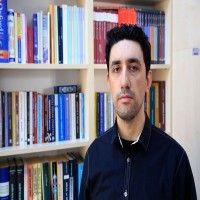
He was born in 1986 in the Sandıklı district of Afyonkarahisar and is originally from Dinar. After graduating from Çivril Anadolu Imam-Hatip High School in 2004, he started his undergraduate education at Istanbul University, Faculty of Theology and completed it in 2008. He started his master’s degree in the same year at the Department of History of Religions, Institute of Social Sciences of the same university. In December 2009, he was appointed as a Research Assistant in the field of History of Religions at Süleyman Demirel University, Faculty of Theology and completed his thesis titled Magic Squares in Religions in 2011. He started his PhD. in the Department of History of Religions, Institute of Social Sciences of Süleyman Demirel University in September 2011 and earned the title of “doctor” in 2017 with his thesis titled “Justin Martyr as a Christian Apologist”. The author, who received the title of Associate Professor in February 2024, gives lectures at the undergraduate, graduate and doctoral levels in the field of History of Religions, Faculty of Theology and at the undergraduate level in the field of Medical Anthropology, Faculty of Medicine. He is advanced in English, intermediate in Arabic and at the beginner level in Ancient Greek. He has publications in the field of History of Religions including books, book chapters, articles, presentations and translations. He is married with two children.
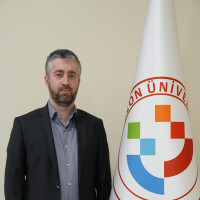
Assoc. Prof. Dr. Ahmet Yazıcı graduated from the Faculty of Theology at Ondokuz Mayıs University in Samsun in 2004. He earned his PhD in 2011 from the Department of Tafsir (Qur’anic Exegesis), Division of Basic Islamic Sciences, Institute of Social Sciences at the same university, with a dissertation entitled “The Perception of Classical and Modern Approaches in Turkish Tafsir Studies.”
Dr. Yazıcı began his professional career as an Imam-Hatip within the Of Muftiate in 2004. He was subsequently appointed to the Atakum Muftiate in July 2007 and to the Bafra Muftiate in October 2010. In 2012, he was appointed as an instructor at the Aşıkkutlu Training Center.
In 2018, Assoc. Prof. Dr. Ahmet Yazıcı was appointed as a faculty member at the Faculty of Theology, Trabzon University, where he continues to serve in this capacity.

Dr Öğr Üyesi, Kayseri Üniversitesi, İslamî İlimler Fakültesi, Temel İslam Bilimleri Bölümü, Kelam ve Mezhepler Tarihi Anabilim Dalı, Kayseri, Türkiye.


Çalışmalarımda İngilizce, Latince ve Rusça kullanmaktayım
1970 yılında Sungurlu'da doğdu.
Ankara Üniversitesi, DTCF Coğrafya bölümünden 1991 yılında mezun oldu.
Yüksek Lisansı 1994 yılında ve doktorayı 1997 yılında tamamladı.
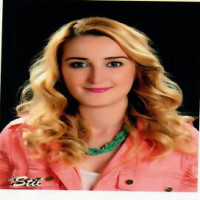



1981 yılında Giresun’da dünyaya geldi. 2005 yılında Marmara Üniversitesi İlahiyat Fakültesi’nden mezun oldu. 2011 yılında “Ebûbekir Zekeriyâ Râzî’nin Metafiziği” adlı teziyle Marmara Üniversitesi Sosyal Bilimler Enstitüsü Felsefe ve Din Bilimleri Anabilim Dalı İslam Felsefesi Bilim Dalı’nda yüksek lisansını; 2017 yılında ise aynı Enstitünün Felsefe ve Din Bilimleri Anabilim Dalı’nda “Fahreddîn er-Râzî’nin el-Mantıku’l-Kebîr’inin Tahkik ve İncelemesi” adlı tezle Mantık alanında doktora eğitimini tamamlamıştır. 2004 yılından itibaren çeşitli kamu kuruluşlarında çalıştıktan sonra 2011 yılında Erzincan Üniversitesi İlahiyat Fakültesi Mantık Anabilim Dalı’na Araştırma görevlisi olarak atanmış olup 2018'de Dr. Öğretim Üyesi, 2022 yılında da Doçent olarak atanmıştır. Halen Gümüşhane Üniversitesi İlahiyat Fakültesi Mantık Anabilim Dalında Doçent olarak görev yapmaktadır. Çalışma alanları; mantık, metafizik ve metodoloji ayrıca felsefi meseleler üzerine popüler yayınları vardır.
Gazete yazıları, Tv programları, şiirleri ve youtube yayınları bulunmaktadır.
Evli ve dört çocuk babasıdır.


Lisans: Hacettepe Üniversitesi Fen Edebiyat Fakültesi Sanat Tarihi (1999-2003)
Yüksek Lisans: Hacettepe Üniversitesi Sosyal Bilimler Enstitüsü Sanat Tarihi ABD (2004-2007)
Doktora: Ankara Üniversitesi Sosyal Bilimler Enstitüsü Sanat Tarihi ABD (2011-2017)
Unvan-Kurum: Doç. Dr., Bozok Üniversitesi Fen-Edebiyat Fakültesi Sanat Tarihi Bölümü, Bizans Sanatı Anabilim Dalı Başkanı





Lisans, Yüksek Lisans eğitimini Fars Dili ve Edebiyatı alanında tamamlamış olup 2017 yılında aynı alanda Dr. ünvanını almıştır. Halen Tokat Gaziosmanpaşa Üniversitesi Yabancı Diller Yüksekokulunda Dr. Öğr. Üyesi olarak görev yapmaktadır.





 Web
Web
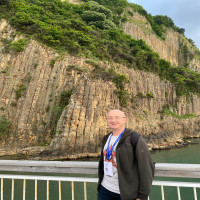
Lisans eğitimini Ankara Üniversitesi, Mühendislik Fakültesi, Jeofizik Mühendisliği (1994-2000), yüksek lisans eğitimini Ankara Üniversitesi, Sosyal Bilimler Enstitüsü, Protohistorya ve Önasya Arkeolojisi Anabilim Dalında (2007) ve doktorasını Ege Üniversitesi, Sosyal Bilimsel Enstitüsü, Bizans Sanatı Anabilim Dalında yapmıştır (2016). Gaziosmanpaşa Üniversitesi Fen-Edebiyat Fakültesi Sanat Tarihi Bölümü, Batı Sanatı ve Çağdaş Sanat Anabilim Dalında Dr. Öğretim Üyesi olarak görev yapmaktadır.
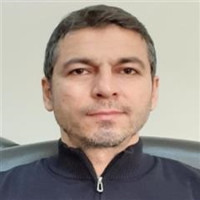
Dr. Öğretim Üyesi Nihat FIRAT
Marmara Üniversitesi İlahiyat Fakültesinden mezun oldu. 2017’de Erzincan Üniversitesi’nde yüksek lisansını (Erzincan C 55 Nolu Şer'iyye Sicili ve Hukuki Değerlendirmesi (1916-1919)), 2022’de de Atatürk Üniversitesi’nde doktorasını (Abdülbâsıt el-Malatî ve Tarihçiliği) tamamladı. 2023 yılında Erzincan Binali Yıldırım Üniversitesi İlahiyat Fakültesi’ne Doktor Öğretim Üyesi olarak atanan Nihat FIRAT’ın yayımlanmış makale, kitap bölümleri ve tebliğleri bulunmaktadır.

2008 yılında Ankara Üniversitesi Dil ve Tarih-Coğrafya Fakültesi Antropoloji Bölümü'nden mezun olan Dr. Öğr. Üyesi Sibel Önal, 2017 yılında Ankara Üniversitesi Sosyal Bilimler Enstitüsü Fizik Antropoloji programında doktorasını tamamladı. 2014 yılından beri mezun olduğu bölümde çalışmaktadır. Ergonomi, kent ergonomisi, beden algısı ve ekoloji üzerine dersler vererek çalışmalarını sürdürmektedir.
1978 İstanbul doğumlu. 1996-2000 yılları arasında İstanbul Üniversitesi Edebiyat Fakültesi Tarih Bölümü’nde Lisans öğrenimini tamamladı. 2002 senesinde İstanbul Üniversitesi Edebiyat Fakültesi Tarih Bölümü Ortaçağ Tarihi Anabilim Dalı’na Araştırma Görevlisi olarak atandı. 2004 yılında İstanbul Üniversitesi Sosyal Bilimler Enstitüsü’nde Yüksek Lisans programından mezun oldu. 2012 senesinde Doktor, 2020’de Doçent unvanlarını aldı. Hâlen aynı anabilim dalında görevine devam etmekte olup İslâm denizciliği ve Türk-İslâm devletleriyle ilgili Lisans, Yüksek Lisans ve Doktora dersleri vermekte, bu konulardaki ilmî çalışmalarına devam etmektedir. İngilizce, Arapça ve Farsça biliyor.

Selçuklu Tarihi, Ortaçağ Türk ve Müslüman Devletleri, Bâtınîlik, İran Tarihi, Ortaçağ tarih yazıcılığı çalışma alanlarıdır.
Medieval History History of Muslim Turkish States and Societies, Tokharistan, Ghaznavids
ADVISORY BOARD

KONYA SELÇUK ÜNİVERSİTESİ
LİSANS
YL
DR TAHSİLİ
Ankara Üniversitesi DTCF Mezunu. Halen Ankara Hacı Bayram Veli Üniversitesinde çalışıyor.
ENGLISH LANGUAGE EDITORS


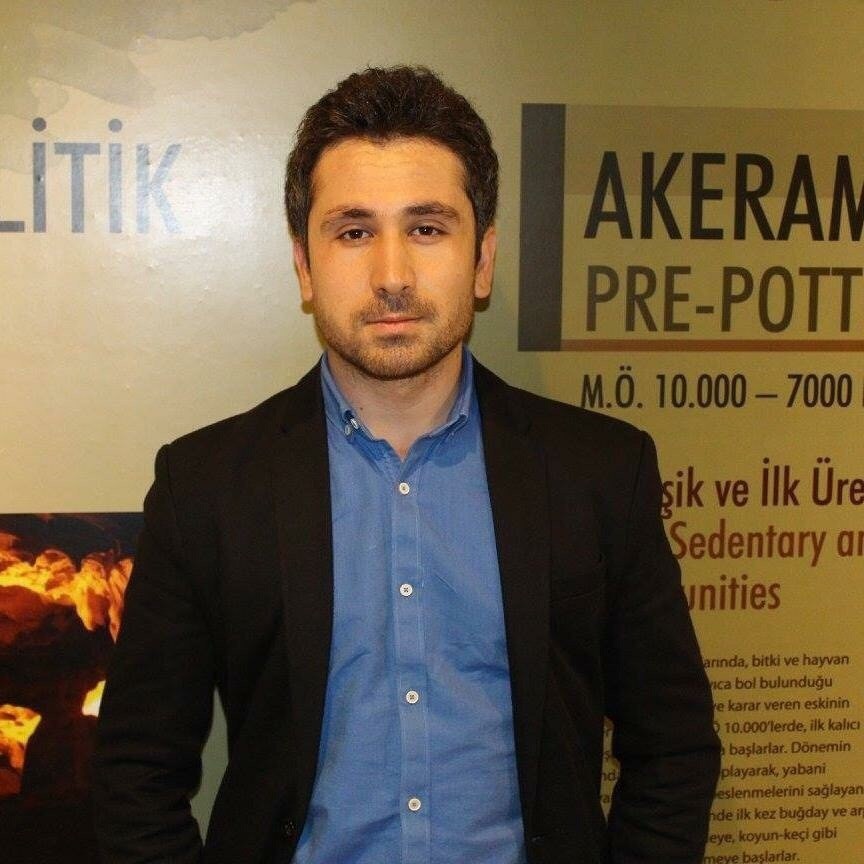
Completed his undergraduate education at Pamukkale University, spending one year of this study at the University of Southern Denmark. Started his master's degree at Istanbul University, but transferred to Aksaray University when he began working there as a faculty member, and completed his degree there. Obtained his Ph.D. from Ankara University, Institute of Social Sciences, Department of Medieval History. Currently works in the History Department of the Faculty of Arts and Sciences at Aksaray University.
WRITING AND LANGUAGE EDITORS






ETHIC EDITOR



 Web
Web
STATISTICS EDITOR
ASSISTANT EDITORS



RESPONSIBLE of SOCIAL MEDIA


TURKISH LANGUAGE EDITOR
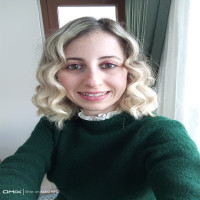
Articles published in Ortaçağ Araştırmaları Dergisi are licensed under a Creative Commons Attribution-NonCommercial 4.0 International License (CC BY-NC 4.0). Ortaçağ Araştırmaları Dergisi provides immediate open-access to its content, reflecting its conviction in advancing global knowledge exchange. The opinions presented in the articles are the sole responsibility of their respective authors and do not present the view or opinions of Ortaçağ Araştırmaları Dergisi. Terms of Use & Privacy Policy









